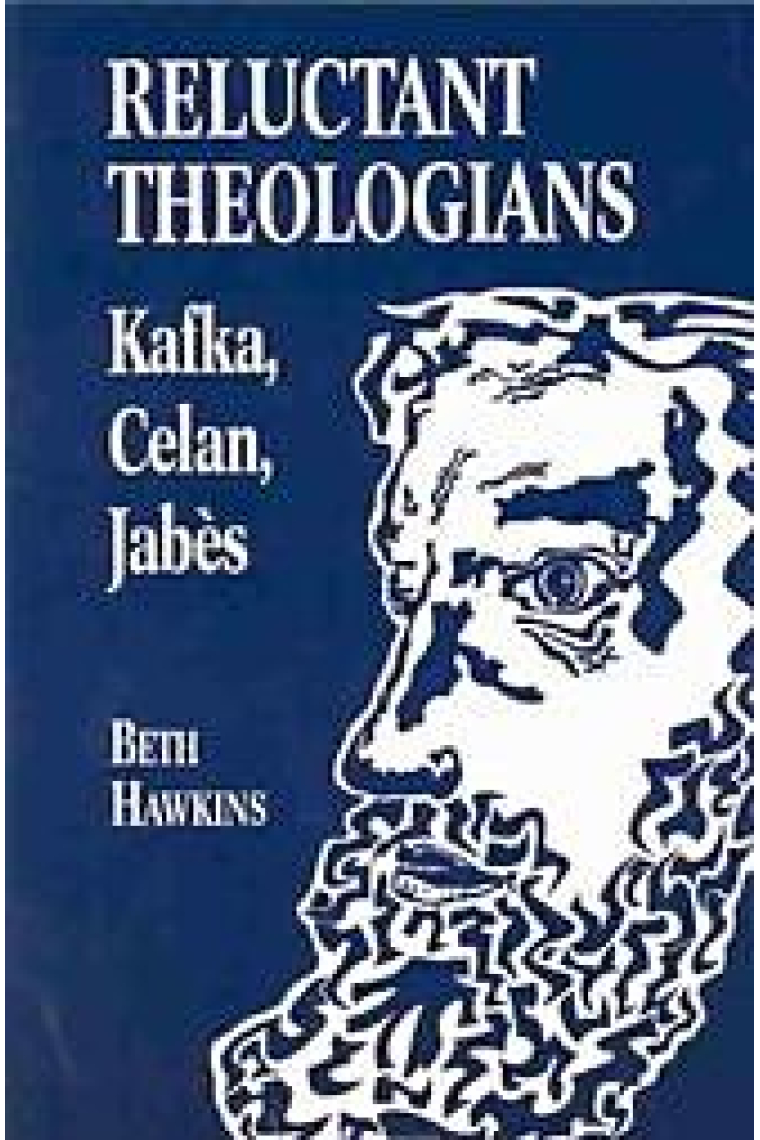Detalles del libro
Reluctant Theologians: Franz Kafka, Paul Celan, Edmond Jabes focuses on the problematic faith in the works of Kafka, Celan, and Jabes. Using their literature to reevaluate the notions of God and covenant in light of Nietzsche's "death of God" hypothesis. Kafka anticipates, while Celan and Jabes directly confront, the question whether the covenant can be sustained in the face of God's slience. Kafka, Celan and Jabes respond affirmatively, but with great ambivalence, to this question. Although Nietzsche's contention that "God is dead" has been duly recognized as a foundational moment of "Modernity," the specific implications of this "death" for Judaism have not yet been widely explored, particularly in the context of literary studies. If "death" is to be understood as the death of a personal and, therefore, speaking God, then such a contention is devastating for a belief system that posits dialogue as the cornerstone of the divine - human relation. And, indeed, the covenant is primarily a dialogical relation. In Reluctant Theologians Beth Hawkins maintains that Kafka, Celan, and Jabes offer their work as a testament of sorts, as three unique instances of Kiddush Ha-Shem (sanctification of the divine name), to a divine source that persists at the same time as it is being continuously reconstituted in the moment of writing. Kafka, Celan, and Jabes are treated as reluctant theologians; despite and because they recognize the legitimacy of Nietzsche's claims, despite and because all metaphysical claims have become questionable for them, these three authors continue to promote the dialogical relation as the type of relation most conducive to ethical behavior. The strategy is as similar as it is paradoxical for the three writers; each is assigned a precarious task: to promote the illusion of a listening Other at the same time as he challenges his readers to adopt an ethics of the void, an ethics that places responsibility and accountability squarely on the shoulders of humanity. At the center of the argument is the spirit of a Kafkan aphorism, in which he reduces belief to being. Driving all three of these projects are two assumptions: that (1) belief is necessary for authenticity and truly ethical behavior, and (2) that naive and/or rigid systems of belief are inadequate and, indeed, hostile to life. The attempt to locate a viable system of belief, one that remains aware of its own illusory nature as it continues to problematize and promote the relation of self and Other, acquires an urgency in the work of these three authors. This particular focus for comparison among Kafka, Celan, and Jabes has not previously been pursued. Here the theological possibilities of Judaism as "modern" slides into "postmodern" are applied to the works of three important twentieth-century Jewish writers, suggesting that these three writers can be attached to the newly emerging discipline of Postmodern Jewish Philosophy. What connects Kafka, Celan, and Jabes to this discipline is their shared belief - tempered for each by a sense of ambivalence concerning notions of "chosenness" and a constant tension between the particular and the general - that a specifically Jewish ethic can serve as a model for a universal ethic.
Ver más - Encuadernación Tapa blanda
- Autor/es Hawkins, Beth
- ISBN13 9780823222018
- ISBN10 0823222012
- Páginas 265
- Año de Edición 2003
- Idioma Inglés
Reluctant theologians: Kafka, Celan, Jabès
- Beth Hawkins
- Editorial FORDHAM
- ISBN 9780823222018
30,40€
32,00€
-5%
Envío Gratis
Consulta disponibilidad
30,40€
32,00€
-5%
Envío Gratis
Consulta disponibilidad
Nuestras libreras pueden consultar su disponibilidad y darte un estimado de cuándo estaría listo. 
 ¡Gracias por comprar en librerías reales!
¡Gracias por comprar en librerías reales!

 Lo mejor de noviembre
Lo mejor de noviembre  Alibri Llibrería, Barcelona
Alibri Llibrería, Barcelona
 Librería Lé, Madrid
Librería Lé, Madrid
 Caselles Llibrería, Lleida
Caselles Llibrería, Lleida








